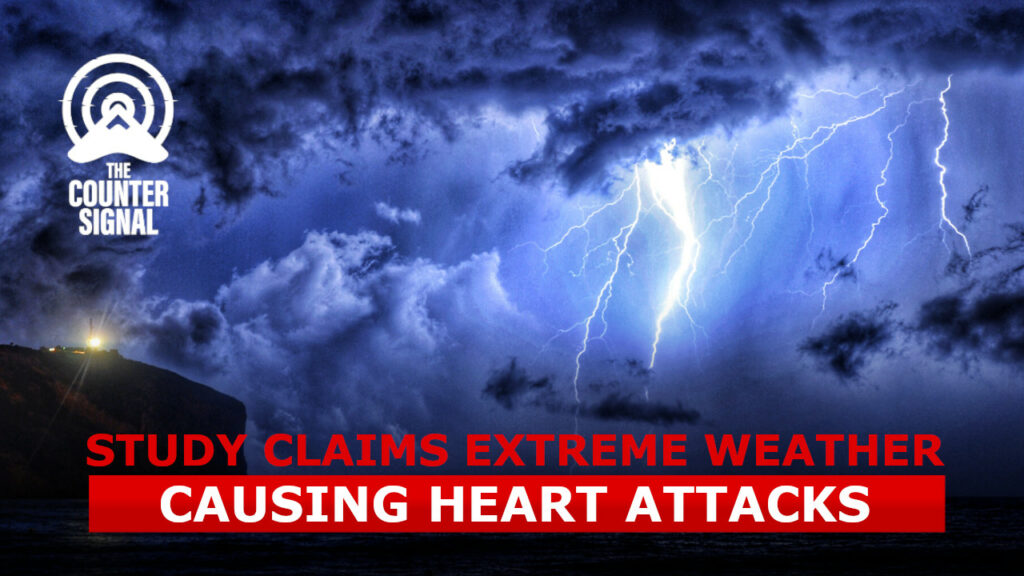A recent study published by CTV News suggests that one in 100 cardiovascular deaths result from extreme cold or hot weather. The solution, the article suggests, is more climate change policies.

“The study found that for every 1,000 cardiovascular deaths, extreme hot days accounted for 2.2 additional deaths, while extreme cold days accounted for 9.1 additional deaths,” CTV reports.
CTV News now says that the Canadian Climate increases heart failure deaths #Canada #Climate #Cdnpoli #Freedom pic.twitter.com/ErZeZqRkez
— Melissa 🇨🇦 (@MelissaLMRogers) December 13, 2022
Researchers published their findings in the American Heart Association journal Circulation. The study analyzed 32 million heart-related deaths over the last four decades across 27 countries.
Researchers found that one in 100 cardiovascular-related deaths “may be” attributed to extreme temperature days. During extremely hot days, 2.2 additional cardiovascular deaths per 1,000 were discovered. And, during frigid days, 9.1 more deaths occurred out of 1,000.
That’s 400% more cardiovascular excess deaths from extreme cold weather than hot.
Despite this, CTV leveraged the study to push for climate change policies to curb warming temperatures.
“The current challenge now is the environment and what climate change might hold for us,” said researcher Barrak Alahmad, as quoted by CTV.
Alahmad told The Counter Signal that the risks of death from hot and cold temperatures are somewhat similar.
“Look at the dose-response curves. They both take off at extreme ranges, but heat takes off rather quickly,” he said.
“Thus, there are more cold days than there are hot days, that’s why you see more excess deaths for cold than it is for heat. That said, this is analyzing historical data.”
“Many other projection studies modelled the “net” effect. The evidence showed that increased heat-related deaths will be much higher than the decreased cold-related deaths.”
In this new analysis (32+ million deaths from 27 countries) we just showed:
— Barrak Alahmad (@Barrak1) December 12, 2022
For every 1000 heart disease deaths, at least:
★ 2 excess deaths are from extreme hot days
★ 9 excess deaths are from extreme cold days
Combined, that's 1 in 100, ok. https://t.co/yoaqZOyABz
5/ pic.twitter.com/ToOX1YLK6T
CTV concluded its article, saying, “The researchers say with climate change, strategies that could reduce the impact of extreme temperatures on cardiovascular disease are needed.”
Earlier this year, CTV News added traffic noises to the growing list of reasons someone may experience a heart attack, totally ignoring the elephant in the room.
According to studies and experts cited by CTV News, other reasons that someone may experience a heart attack include working out while angry, Christmas Eve, the Winter season, shovelling snow, living in a low-income neighbourhood, and having sex.









